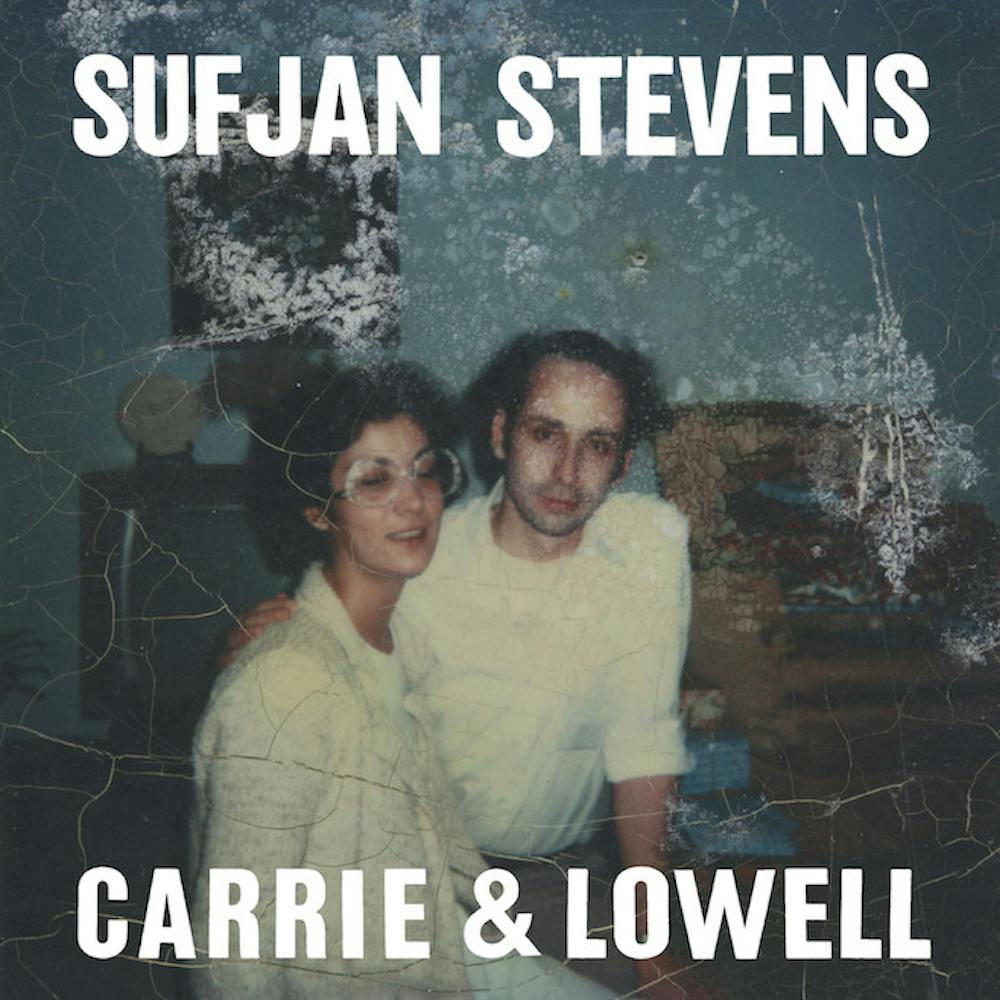Released 3/31/15
6/7 stars
While Sufjan Stevens' newest album, Carrie & Lowell, might not revolve around a landmass or a highway, the artist still manages to express a sense of belonging throughout his pieces. At first listen, you’d think that he’s a will o’ the wisp floating through, strumming songs and giving advice, before disappearing with the next gust of wind. But a man who writes a love song for a serial killer is not to be taken that lightly. He explores an intimate space of grief on this album, and a sense of despair for what’s to transpire. The simple instrumentation belies the complexity of his lyrics and thoughts.
The family he was brought up on is heavy on his mind in his songs. Even the name of the album is a tribute - to his mother and his stepfather. As told in interviews, his mother left when he was a year old, and struggled with mental illness before she passed away in 2012. He’s trying to reconcile the pain of an absent mother with the death of woman he never really knew. “What song do you sing for the dead?” he ponders in “Death with Dignity.” The idea floats over to the next song, “Should Have Known Better.” He alludes to trips to Oregon with his family, as well as juxtaposing the past with his mother, with the future of the fresh family. “My brother had a daughter / The beauty that she brings, illumination,” he sings, as the song progressively grows more upbeat.
The title song is a like a patchwork of memories, as Stevens tries to chase fading times. He adds layered harmonies that add to the poignancy of the darkness that lies behind the corner. His mother’s issues are “carried by stones,” “like a dead horse” - he even adds in the name of the medication she was on. All of this “ephemera” proves that the memories aren’t to be enjoyed for long.
Besides his family, Stevens seems to want to dredge up past relationships and question his belonging in this world. In “All of Me Wants All of You,” he realizes that he is walked over, but he still longs for the person in question. In “Eugene,” he comes out and says that it’s bittersweet to realize that “admitting the past is behind me.” That also raises the question of his purpose in this life, which is a prominent feature of “Fourth of July.” He juxtaposes pet names like “my firefly” and “my hawk” while finding it odd that it was time to say good-bye. He wants to know what his pet has learned before they passed away, and fades into a chorus of “we’re all gonna die.”
The neuroses of being left behind is further explored in “The Only Thing.” A circular song, it returns to Stevens' relationship with God, saying, “Everything … returns to you somehow,” no matter if he wasted his life on other things. In “John my Beloved,” Steven falls in love with a mystery, and while he’s trying to find somebody, anybody, to protect him, he also feels unequal and a waste. All of this strife is caught up in a moment of lust, love, or hope, and doesn’t last long.
Second-to-last on the album, “No Shade in the Shadow of the Cross” simply epitomes Carrie & Lowell. Lyrically, it is one of the simplest tracks. But each word packs more punch, and digs straight to all of the agony that he explores in his other songs. Between his mother, his lost lovers, yearning for love, realizing he’s taking things too far, and that he’s “falling apart,” the song floats all of his despairs into a simple, elegant lullaby, or dirge. The biblical illusions continue - he seems to say that living up to an ideal leaves no room for wrongdoings, and the thought of that haunts him. In a mere few moments, Stevens wraps up his thoughts and presents it in a neat little map, with none of the allusions he adds in his other pieces.
Currently, the album is streaming online at NPR and will be released on March 31. Top tracks to listen to: "No Shade in the Shadow of the Cross," "Fourth of July," "John My Beloved," and "Carrie & Lowell".





